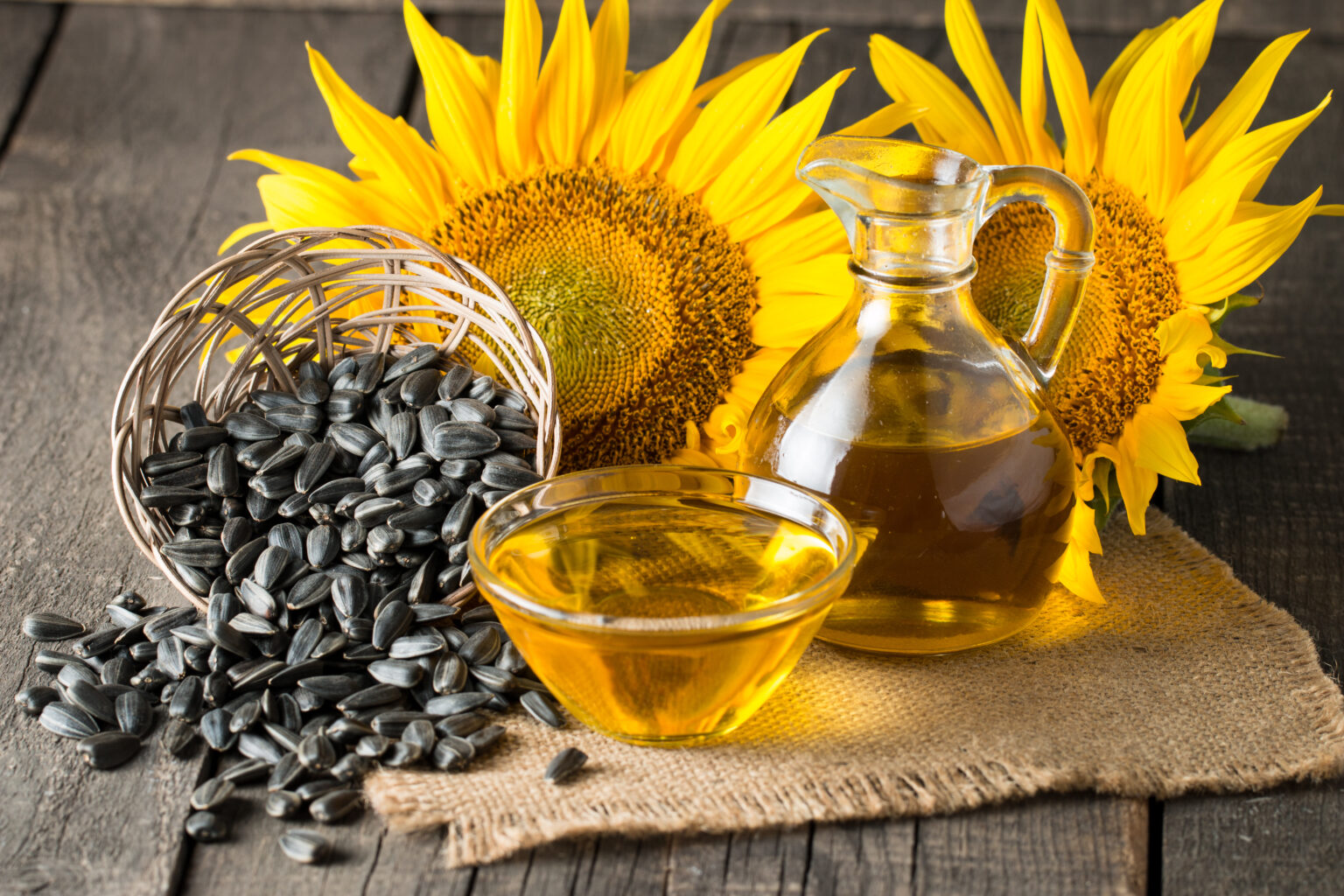Seed oils are plant-derived fats extracted from the seeds of various crops, including sunflower, soybean, and safflower. These oils have become a staple in many kitchens due to their versatility in cooking and baking. Their nutritional profile is a topic of interest, as they are known to contain essential fatty acids, such as omega-6 and omega-3. While omega-3 fatty acids are often praised for their anti-inflammatory properties and benefits to heart health, there are concerns surrounding the high levels of omega-6 fatty acids found in some seed oils, which may contribute to inflammation when consumed in excess.
In the vast sphere of nutrition, the role of seed oils in a balanced diet has been debated among health professionals. Including these oils in ultra-processed foods has led to a surge in omega-6 fatty acid consumption, which is disproportionate to the intake of omega-3 fatty acids in typical Western diets. This imbalance is suggested to have health implications, prompting some experts to advise caution regarding the quantity and types of seed oils included in one’s diet.
As they navigate the complexities of nutrition and diet, consumers often need more information on seed oils. While some seed oils are highly processed, alternatives that undergo minimal processing preserve more natural nutrients and may offer a better nutritional profile. It’s essential to understand not only the types of seed oils available but also to recognise the importance of the processing methods that may affect their health benefits or risks. As with any dietary choice, moderation and focusing on unprocessed or minimally processed options are vital considerations for health-conscious individuals.
Overview of Seed Oils
Seed oils are extracted from the seeds or kernels of various plants, encompassing a crucial part of the human diet and the agricultural industry. They have multifaceted uses, ranging from cooking and cosmetics to pharmaceutical applications.
The extraction and processing methods significantly affect the properties and quality of the oil. These oils broadly fall into three categories based on their fatty acid composition: saturated, monounsaturated, and polyunsaturated fats. Saturated fats are commonly found in animal products and certain tropical oils, while monounsaturated and polyunsaturated fats are abundant in most seed oils.
Notably, polyunsaturated fats include omega-6 and omega-3 fatty acids, both essential to human health but needed in a balanced ratio. Olive oil, known for its higher monounsaturated fat, is often classed separately due to its fruit origin; however, it is sometimes grouped with vegetable oils for its usage in food preparation.
A selection of widely used seed oils encompasses:
- Sunflower oil: Rich in vitamin E and low in saturated fat.
- Soybean oil: Contains omega-3 fatty acids and is versatile in cooking.
- Rapeseed oil (including canola oil): Low in saturated fat with diverse uses.
- Corn oil: High in polyunsaturated fats, particularly omega-6.
- Safflower oil: High in monounsaturated fats; suitable for high-heat cooking.
- Cottonseed, rice bran, and peanut oils offer unique nutritional profiles and use.
Seed oils are also under scrutiny for their omega-6 content; while necessary, excess consumption might be linked to inflammation. Hence, a balanced diet, including various oil sources, is generally recommended to ensure nutritional adequacy and health benefits.
Nutritional Profile
Seed oils are a vital component of the human diet, providing essential nutrients. These oils contain various fatty acids, both saturated and unsaturated, and are rich sources of vitamins and antioxidants that contribute to overall health.
Fatty Acid Composition
Seed oils typically have a high concentration of polyunsaturated fatty acids (PUFAs), which include omega-6 and omega-3 fatty acids. The balance between these fatty acids is crucial, as they play different bodily roles. For example:
- Omega-6 fatty acids, such as linoleic acid (C18:2, n-6), are abundant in seed oils like safflower, sunflower, and grape. They are essential for brain function and average growth and development.
- Omega-3 fatty acids, such as alpha-linolenic acid (ALA), found in oils from hemp and flax seeds, are known to support heart health and may have anti-inflammatory properties.
| Seed Oil | Omega-6 Fatty Acid Composition | Omega-3 Fatty Acid Composition |
|---|---|---|
| Safflower Oil | High in linoleic acid | Low in ALA |
| Sunflower Oil | High in linoleic acid | Low in ALA |
| Hemp Oil | Moderate | High in ALA |
| Pumpkin Seed Oil | Moderate | Moderate |
Saturated fats are present in seed oils but generally in smaller quantities than polyunsaturated and monounsaturated fats. These saturated fats contribute to the overall fatty profile but should be consumed in moderation.
Vitamins and Antioxidants
Seed oils are a rich source of vitamin E, an antioxidant that helps protect cells from oxidative damage. This is particularly valuable as it may aid in preventing chronic diseases and supporting immune function.
In addition to vitamin E, seed oils can contain other antioxidants and phenolic compounds, further contributing to their health benefits. Phenols, for instance, are found in olive seed oil and have been recognised for their potential in dietary fibre and lipid content.
| Seed Oil | Vitamin E | Phenolic Compounds |
|---|---|---|
| Olive Seed Oil | Present | High |
| Sunflower Oil | Present | Moderate |
In essence, the fatty acid composition and presence of vitamins and antioxidants in seed oils make them a nutritionally rich addition to a balanced diet. Their various constituents, such as omega-6 and omega-3 fatty acids, alongside other beneficial fatty acids and micronutrients, play indispensable roles in maintaining health.
Health Impacts
Seed oils have become a significant part of the modern diet, and their health impacts are an ongoing subject of research and debate. This section focuses on their association with heart disease and cholesterol, inflammation and chronic diseases, obesity and weight management, and cognitive and mental health.
Heart Disease and Cholesterol
Seed oils are rich in omega-6 fatty acids, which, in large amounts, can tip the balance of fatty acids in the body and potentially increase cholesterol levels. However, consuming them in moderation as part of a balanced diet is generally considered acceptable by the American Heart Association. Some studies propose a higher omega-6 to omega-3 ratio may contribute to cardiovascular disease.
Inflammation and Chronic Diseases
Chronic inflammation is linked to a range of diseases, including cancer and diabetes. Omega-6 fatty acids found in seed oils can be pro-inflammatory when consumed in excess. However, these oils also contain omega-3 fatty acids, notably in flaxseed oil, which are known for their anti-inflammatory properties. Dietary guidelines suggest balancing omega-6 intake with omega-3 to mitigate inflammation.
Obesity and Weight Management
Overconsumption of any high-calorie food, including foods high in omega-6 fatty acids like certain seed oils, may contribute to weight gain and obesity, which are prevalent concerns in the typical American diet. Including these oils as part of a calorie-controlled diet for effective weight management is essential.
Cognitive and Mental Health
Dietary fats, including those found in seed oils, affect cognitive function and mental health. Some studies suggest a link between diets high in saturated fats and cognitive decline, whereas omega-3 fatty acids are often associated with decreased risk of depression. The impact of seed oils on cognitive health necessitates further research to understand their effects fully.
Cooking and Usage
When using seed oils in the kitchen, it is crucial to understand their smoke points and appropriate cooking methods. These factors influence the nutritional value and safety of the oil during cooking.
Smoke Points and Cooking Methods
Seed oils vary widely in their smoke points, the temperatures at which they begin to smoke and break down, potentially forming harmful compounds. For instance, refined seed oils like safflower and sunflower typically have higher smoke points suitable for:
- Frying: Temperatures above 190°C
- Baking: Moderate oven temperatures of about 175°C
- Sautéing: Medium to high stovetop heat
Conversely, unrefined seed oils generally have lower smoke points and are better suited for salad dressings or low-temperature cooking.
Home Cooking vs Processed Foods
Home cooking with seed oils allows for more control over one’s diet and can contribute to better nutrition and health. It involves less usage of highly processed oils often found in fast foods or unhealthy foods. On the other hand, processed foods often contain seed oils that have undergone extensive processing, striping them of some beneficial nutrients. Consuming these oils in moderation is vital, as a balanced diet necessitates a variety of fats and oils.
Comparisons and Alternatives
This section explores the distinctions between seed oils and other fats, discusses healthier oil choices, and compares processed oils to their natural counterparts.
Seed Oils vs Animal Fats
Seed oils predominantly comprise polyunsaturated fats, particularly omega-6 fatty acids, which are essential but can be pro-inflammatory in excess. On the other hand, animal fats like butter and lard contain higher amounts of saturated fats, which are stable at high temperatures and less prone to oxidation. Consuming a balance of fats, including omega-3 and omega-6 fatty acids, is crucial for maintaining health.
Healthy Oil Alternatives
For those seeking to reduce polyunsaturated fat intake from seed oils, several alternatives offer health benefits:
- Extra-virgin olive oil: High in monounsaturated fats and known for its heart-healthy properties.
- Coconut oil: Contains medium-chain triglycerides (MCTs), offering a tropical flavour and stability when baking.
- Nuts and their oils, like walnut oil, are rich sources of omega-3 fatty acids and add diverse flavours to dishes.
| Oil Type | Major Fats | Use Cases |
|---|---|---|
| Olive Oil | Monounsaturated fats | Salad dressings, low-heat cooking |
| Coconut Oil | Saturated fats, MCTs | Baking, adds tropical flavour |
| Walnut Oil | Omega-3 fatty acids | Salads, low-heat cooking |
Processed vs Natural Oils
Highly processed oils, like canola and generic vegetable oils, often undergo hydrogenation, which can introduce unhealthy trans fats. Conversely, natural oils, such as extra-virgin olive oil or cold-pressed nut oils, maintain a more healthful nutrient profile. Integrating a variety of natural oils and other food groups like fruits, vegetables, and grains can support a balanced and nutritious diet.
Controversies and Misconceptions
In discussing seed oils, navigating through the thickets of nutritional myths and media influences is crucial while considering the gap between scientific evidence and public perception.
Nutritional Myths
Omega-6 and Omega-3 Fatty Acids: One pervasive myth is that seed oils are harmful due to high levels of omega-6 fatty acids, which are claimed to cause chronic inflammation. However, omega-6 fatty acids are essential to the diet, and the balance with omega-3 fatty acids is critical. Nutrition guidelines recommend a balanced intake of fatty acids to support health and reduce the risk of inflammation-related health problems.
Toxicity Claims: Some assert that seed oils are “toxic,” yet there is no scientific backing for this claim. Registered dietitians and nutrition experts emphasise that seed oils can offer nutritional benefits without posing health risks when consumed as part of a varied diet.
Media Influence and Trends
Social Media Trends: Platforms like TikTok have the power to make specific health claims go viral, often without scientific merit. For example, simplistic videos labelling seed oils as ‘bad’ can spread faster than complex, evidence-based information, influencing public opinion disproportionately.
Misleading Headlines: Media outlets sometimes leverage sensational headlines that can misrepresent research findings. Phrases implying that everyday food is suddenly ‘bad’ for you might catch more eyes, but they do not reflect the comprehensive analysis in meta-analyses and systematic reviews.
Scientific Evidence vs Public Perception
Research vs Beliefs: Despite the consensus in the scientific community on the role of seed oils in a balanced diet, public perception is often swayed by anecdotal evidence and non-expert opinions circulated online.
The Role of Experts: Nutrition science relies on controlled studies and peer-reviewed research. When experts like dietitians or nutrition scientists provide context for the raw data from such studies, they paint a more accurate picture of the role of seed oils in diet and health.
Recommendations and Guidelines
This section clarifies the standards for incorporating seed oils into one’s diet, as directed by recognised dietary guidelines and health professionals and practical tips for consumers.
Dietary Guidelines and Professional Advice
Dietary experts, including registered dietitians and organisations such as the American Heart Association, emphasise the role of unsaturated fatty acids in promoting heart health. They stress substituting saturated fats with unsaturated fats found in seed oils like flaxseed, which is high in alpha-linolenic acid (ALA), an omega-3 fatty acid beneficial for nutrition. The 2020-2025 Dietary Guidelines for Americans advocate this switch, reinforcing advice rooted in decades of research. These guidelines suggest a moderate total fat intake, particularly favouring vegetable oils.
German dietary standards, for example, advise a daily consumption of 60-80 grams of total fat, proposing 10-15 grams from oils such as rapeseed, walnut, or soybean oil and 15-30 grams of margarine or butter. They promote moderation and awareness of hidden fats in one’s diet.
Consumer Choices for Health
Consumers striving for a healthful diet can make informed choices regarding seed oils. The key is selecting oils that provide nutritional benefits within an affordable range, suitable for home cooking. Options include:
- Rapeseed oil (Canola): A heart-healthy option with a balance of omega-3 and omega-6 fatty acids.
- Soybean oil: Contains a favourable unsaturated to saturated fat ratio.
- Walnut oil: A good source of ALA, similar to flaxseed oil.
To ensure diet compatibility, consumers are encouraged to check for trans fats and chemical contaminants that might negate the health benefits. Education about the origins and processing of seed oils can enhance dietary choices, leading to better overall health outcomes.
Environmental and Economic Factors
The extraction and production of seed oils significantly hinge on environmental and economic aspects, which are deeply intertwined. Efficient agricultural practices are paramount to fostering ecological balance and economic viability, especially for crops rich in polyunsaturated fatty acids, such as chia and hemp seeds.
Agricultural Practices
Agricultural practices for chia and hemp seeds profoundly affect oil production’s environmental footprint and economic output. Culturing these seeds often requires a careful balance of resources to ensure soil health and reduce environmental impact.
- Crop Rotation: A method used to maintain soil health, crop rotation is crucial for nut and seed crops. It helps to prevent the depletion of nutrients, especially when high-value seeds such as chia or hemp are involved.
- Irrigation: Efficient water use in cultivating seeds is vital. Over-irrigation can lead to water wastage and increased costs, whereas under-irrigation can affect the yield of oil-rich seeds.
- Pest Management: Sustainable pest control in growing nuts and seeds is desirable, minimising harmful chemicals, thus reducing ecological damage and production expenses.
The economic aspect of seed oil production must be considered. Economies of scale are pivotal in offering a market that can provide affordable seed oils. Cultivation techniques must ensure a viable yield of chia and hemp seeds, which are renowned for their high content of polyunsaturated fatty acids, making them highly sought after in health-conscious markets.
While traditional oil extraction methods from seeds can be cost-effective, they may only sometimes align with sustainable practices. The agricultural sector strives to strike a balance, using farming methods supporting economic viability and environmental sustainability.
Future Perspectives and Research
Research in seed oils continues to expand knowledge on health impacts and potential industrial applications. One primary focus lies in improving oil content and quality in seeds. Studies emphasise the importance of polyunsaturated fatty acids (PUFAs), such as omega-6 and omega-3, essential for human health. However, the stability of these oils during processing and storage is a crucial concern, as they can be relatively unstable.
Current Efforts:
- Genome Editing: CRISPR-mediated technology shows promise for improving seed oil profiles in crops like Brassica napus.
- Transgenic Approaches: These methods target the production of tailor-made oils and may expedite the development of crops with enhanced oil quality.
Research Objectives:
- Health: To achieve a balanced ratio of omega-6 and omega-3 fatty acids.
- Stability: To increase the strength of PUFAs in seed oils.
- Yield: To harness genetic engineering to boost seed oil yields.
Challenges:
- Seed Shattering: Addressing agricultural issues such as seed shattering, which affects yield and economic viability.
- Economic Factors: Ensuring that new developments are cost-effective for widespread adoption.
The research will likely utilise cutting-edge genetic tools and scientific evidence to enhance seed oils’ health and industrial uses. It must also consider newly developed crops’ environmental and economic feasibility to ensure future sustainability.
Frequently Asked Questions
What seed oils are suggested to be minimised in the diet?
While seed oils need not be entirely excluded, they are generally less nutrient-rich compared to other fats. People should limit their intake of processed foods that commonly contain seed oils.
Does olive oil count as a seed oil?
Olive oil is classified as a vegetable oil derived from pressing whole olives and not solely the seeds. It has a more significant proportion of olive flesh than seed in the final product, distinguishing it from typical seed oils.
Which food items contain seed oils?
Many processed foods contain seed oils. Proper storage can extend their shelf life up to nine months. However, heat, light, and air exposure can cause these oils to spoil in as little as two months.
Are there alternatives to seed oils?
For those seeking alternatives to seed oils, olive, avocado, coconut, and butter offer excellent options. They are usually lower in linoleic acid and have neutral flavours, making them versatile for various culinary uses.
Conclusion
Seed oils, extracted from various seeds like sunflower and flax, represent a prominent part of dietary fats in modern cooking. They are rich in omega-6 fatty acids, which, while essential in small quantities, can promote inflammation when consumed in excess. Nutrition experts emphasise the balance between omega-6 and omega-3 fatty acids in one’s diet, often stressing the role of omega-3s in options such as fatty fish and certain plant seeds.
In health, concerns have been raised regarding the heavy processing methods employed to produce commercial seed oils. This processing can reduce their nutritional value and introduce harmful compounds. However, it is crucial to acknowledge that not all seed oils are created equal; flaxseed oil, for example, is high in beneficial alpha-linolenic acid, an omega-3 fatty acid.
Dietary guidelines typically recommend moderation in the consumption of seed oils, advising a varied intake of fats to ensure a balance of essential fatty acids. While seed oils have a place in cooking, providing flavour and texture to dishes, individuals might consider combining them with other fat sources to achieve a well-rounded dietary profile.
In conclusion, seed oils are a significant aspect of nutrition and cooking practices. While they have their place within dietary guidelines, understanding the health implications and ensuring a balanced intake within one’s diet is advisable. Consumers are encouraged to consider the type and processing of seed oils they consume, considering the broader context of their overall dietary patterns.









